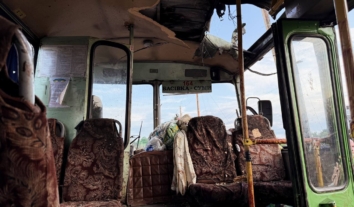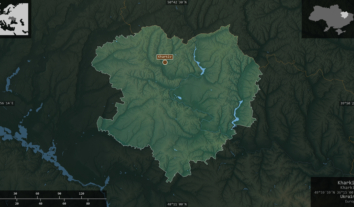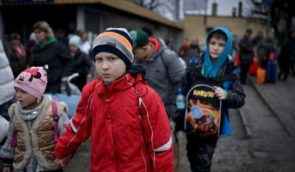Demands are voiced at the OSCE meeting to terminate investigations against four Ukrainian journalists that had been initiated by the Russian authorities
Ukrainian delegation to the OSCE conference in Vienna noted their efforts to bring four criminal cases against Crimean journalists to a close, as well as to ensure lift of a travel ban for journalist Mykola Semena to leave Crimea for medical treatment. The cases in question target Mykola Semena, Roman Sushchenko, Andriy Klymenko and Anna Andrievska.

Mykola Semena’s lawyer, Emil Kurbedinov, emphasized this when speaking at the Human Rights Information Centre event dedicated to securing freedom of speech in Crimea. The event was held under the auspices of the additional Human Dimension Implementation Meeting of OSCE participating states.
The attorney noted that Mykola Semena who is accused of allegedly working through media to call for violation of territorial integrity of Russia, was denied by the FSB the right to undergo medical treatment in mainland Ukraine. He emphasized that Mykola Semena was facing ever more acute health issues, and he could develop a disability, should no action be undertaken to treat his condition.
According to Emil Kurbedinov, the secret service and the judges refused to disclose – at the request of Semena’s lawyers – the results of expert assessments conducted on media publications authored by Semena.
“The expert assessments – which we believe to be biased – contained conclusions that the media-works by Semena contained separatist statements, and calls to alternation of territorial integrity of Russia. In essence, both the defending lawyers and Semena were deprived of their right to commission independent expert assessments with experts who are not influenced by the FSB” – underlined Kurbedinov. He also noted that “The investigators are pursuing several tasks. One of them is to terrorize Semena himself into stopping his protest activities. The other is to intimidate other journalists so that they do not dare criticize the Russian authorities”.
Crimean journalist, Olena Lysenko, who currently resides in Kyiv, noted that she was scared to go to Crimea to visit her relatives. This fear appeared after the latest criminal cases that were launched in retaliation for criticism of the government. Olena gave an example of Larysa Kitayska, a Crimean citizen who after the annexation of the peninsula moved to Kyiv. In August, she returned to Yalta to sell her apartment. Ms. Kitayska, a retiree, cannot return to mainland Ukraine, since a criminal case was launched against her for criticizing the Russian government in social media. For this, she is facing charges of extremism.
Olena Lysenko noted that even the pro-Russian journalists find themselves under persecution. Oleksiy Nazimov, editor-in-chief of “Tvoya gazeta” newspaper is in a temporary detention facility these days, facing criminal charges. These were launched after “Tvoya gazeta” started showcasing illegal activities by the Crimean authorities which initiated construction works at the beaches.
Olena Lysenko believes that the Russian government through repressions is intimidating proactive people, including journalists. She stated that journalists begin refraining from visiting politicized court hearings – since those who cover such court trials may find themselves accused of extremism.
Journalist Yuriy Lukanov emphasized that the practice of persecuting journalists in Crimea has been replicated beyond the peninsula’s borders by the Russian authorities. Testimony to that is the arrest of the Ukrinform journalist working in Paris, Roman Sushchenko, who came to Moscow on private business. “Russian authorities do not even care about sounding credible, – noted Lukanov – by accusing a journalist working in France of espionage against Russia”.
Lukanov noted that the event organized by the Ukrainian group was called not only to draw attention to the issue of the freedom of speech in Crimea but also to achieve tangible results – push the Russian authorities to close criminal proceedings against four Ukrainian journalists and lift the travel ban for Mykola Semena to leave Crimea for medical treatment.
This April saw house searches with several Crimean journalists. A criminal case was launched against Mykola Semena for public calls to violation of territorial integrity of Russia through media. He is faced with charges that may lead to him spending 5 years in prison. As of late, his medical condition has deteriorated significantly. The Kyiv Institute of Neurosurgery concluded that the journalist needed an operation. If the medical intervention is not performed, there is a risk for the journalist of developing a disability.







